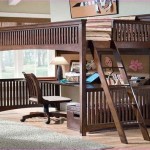Are Galvanized Garden Beds Safe?
Galvanized steel, a common material for garden beds, offers numerous advantages, including durability, resistance to rust, and affordability. However, concerns regarding its safety have emerged due to the presence of zinc, the metal used for galvanizing. This article will delve into the potential risks associated with galvanized garden beds, explore the factors influencing their safety, and provide insights into minimizing potential hazards.
Zinc Leaching and Plant Toxicity
The primary concern regarding galvanized garden beds is the potential leaching of zinc into the soil and subsequently into plants. Zinc, while an essential nutrient for plant growth in small quantities, can become toxic at higher concentrations. When galvanized steel is exposed to moisture, particularly acidic soil conditions, zinc ions can leach out, potentially accumulating in the soil over time. This accumulation can make the soil unsuitable for plant growth, leading to zinc toxicity, characterized by stunted growth, leaf discoloration, and reduced yield.
The extent of zinc leaching varies depending on several factors, including the type of galvanizing process, the thickness of the zinc coating, and the acidity of the soil. Hot-dipped galvanized steel, which has a thicker zinc coating, generally leaches less zinc compared to electrogalvanized steel. Additionally, acidic soils with a low pH promote greater zinc leaching than alkaline soils.
Potential Health Risks for Humans and Animals
While zinc toxicity primarily affects plants, it can also pose risks to humans and animals who consume produce grown in galvanized garden beds. Ingesting zinc-contaminated crops can lead to a range of health issues, including gastrointestinal upset, nausea, vomiting, and potentially more severe complications in extreme cases. However, it's important to note that the risk of zinc toxicity from garden produce is generally low, especially when proper precautions are taken.
Minimizing Risks and Promoting Safety
Several measures can be taken to minimize risks associated with galvanized garden beds and promote safe gardening practices. These include:
1. Using Alternative Materials:
Consider using alternative materials for garden beds, such as cedar, redwood, or treated lumber. These materials are less likely to leach harmful substances into the soil and are generally regarded as safer for plant growth. While these alternatives might be more expensive, they can offer a more sustainable long-term solution.
2. Selecting High-Quality Galvanized Steel:
If opting for galvanized steel, prioritize hot-dipped galvanized steel with a thicker zinc coating. This type of galvanizing offers greater resistance to corrosion and reduces the potential for zinc leaching. Ensure the steel is properly sealed or painted to further reduce its contact with soil moisture.
3. Regular Soil Testing:
Regularly test the soil for zinc levels to monitor potential accumulation. This allows for early detection of excessive zinc levels, enabling timely adjustments to gardening practices or material replacements. Soil testing kits are readily available and can provide valuable insights into soil health.
4. Choosing Zinc-Tolerant Plants:
Certain plant species are more tolerant to zinc than others. When selecting plants for a galvanized garden bed, consider choosing varieties known for their zinc tolerance. Researching the specific needs of your chosen plants and selecting compatible species can mitigate the risk of zinc toxicity.
5. Regular Cleaning and Maintenance:
Maintaining galvanized garden beds through regular cleaning and upkeep is crucial. Remove any debris or plant material that may accumulate within the bed, as they can decompose and create acidic conditions that promote zinc leaching. This practice can extend the lifespan of the galvanized steel and reduce potential hazards.
By understanding the potential risks associated with galvanized garden beds and implementing appropriate safety measures, gardeners can create a healthy and safe growing environment for their plants. Choosing alternative materials, selecting high-quality galvanized steel, and regularly monitoring soil zinc levels are key steps in ensuring a safe and sustainable garden.

Are Galvanized Steel Garden Beds Safe Epic Gardening

5 Misconceptions Of Metal Garden Beds Why They Are Safe Sunnydaze Decor

Is It Safe To Use Vegega Metal Raised Garden Beds Bed

Bentism Galvanized Raised Garden Bed 8x4x1 Ft Metal Beds For Gardening Planter Box Vegetables Flowers With Safe Edging Gloves And Planting Tools Dark Grey Com

Zeus Ruta Elevatededen 8 Ft X 3 2 White Galvanized Steel Raised Garden Bed Oval Zeang004 The Home Depot

Bentism Raised Garden Bed 4x2x1 Ft Galvanized Metal Planter Box With Safe Edging And Bottom Pad For Flowers Herbs Silver Com

Kesfitt Raised Garden Bed Kit Outdoor Galvanized Planter Boxes With Safety Edging And Gloves Large Metal Beds For Gardening Vegetables Fruits Flower 6x3x1ft Yahoo Ping

Winpull Raised Garden Bed Kit Large Galvanized Beds Outdoor Planter Box With Safety Edging And Gloves Metal For Gardening Vegetables In 2024 Kits

32 Tall 4 In 1 Modular Galvanized Metal Raised Garden Bed Benehorti

Cesicia 8 Ft X 4 1 5 Quartz Gray Rectangle Metal Outdoor Steel Raised Garden Bed Planter Box For Vegetables W Gxy 70 The Home Depot







